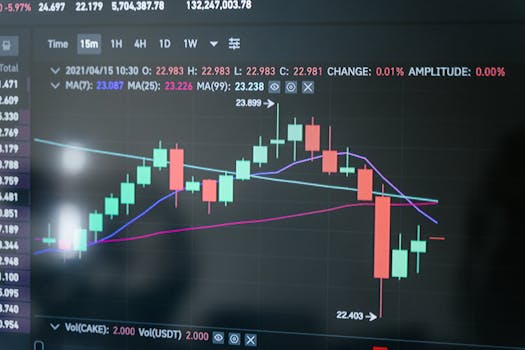
Navigating the Future: Emerging Trends in Fintech Technology
Fintech technology is revolutionizing the financial industry, with emerging trends and technologies transforming the way we manage our finances, make payments, and conduct transactions. As we navigate the future of finance, it’s essential to stay informed about the latest developments and innovations in the fintech space.
Introduction to Fintech

Fintech, short for financial technology, refers to the integration of technology and finance to create new and innovative financial products, services, and systems. The term encompasses a broad range of technologies, including blockchain, artificial intelligence, mobile payments, and digital banking. Fintech has disrupted traditional financial institutions and business models, creating new opportunities for startups, entrepreneurs, and established players alike.
Emerging Trends in Fintech

Several emerging trends are shaping the future of fintech, including:
- Blockchain and Distributed Ledger Technology: Blockchain technology has the potential to revolutionize the way we conduct transactions, manage identity, and verify ownership. Distributed ledger technology enables secure, transparent, and efficient data sharing and storage.
- Artificial Intelligence and Machine Learning: AI and ML are being used to improve risk management, detect fraud, and enhance customer experience. These technologies can analyze vast amounts of data, identify patterns, and make predictions, enabling more informed decision-making.
- Digital Payments and Mobile Banking: Digital payments and mobile banking are transforming the way we manage our finances, make transactions, and access financial services. Mobile wallets, contactless payments, and peer-to-peer payment platforms are becoming increasingly popular.
- Robo-Advisory and Wealth Management: Robo-advisory platforms use AI and ML to provide automated investment advice and portfolio management. These platforms offer low-cost, efficient, and personalized wealth management services to individuals and institutions.
- Regulatory Technology and Compliance: Regulatory technology (regtech) helps financial institutions manage regulatory requirements, reduce compliance costs, and improve risk management. Regtech solutions use AI, ML, and blockchain to streamline compliance processes and enhance transparency.
Future of Fintech

The future of fintech is exciting and uncertain, with emerging trends and technologies poised to transform the financial industry. As we navigate the future of finance, it’s essential to stay informed about the latest developments and innovations in the fintech space. Some potential future trends and applications include:
- Quantum Computing and Fintech: Quantum computing has the potential to revolutionize the fintech industry, enabling faster and more secure processing of complex financial transactions and data analysis.
- 5G Networks and Fintech: 5G networks will enable faster, more secure, and more reliable data transmission, which will be critical for fintech applications, such as mobile payments and digital banking.
- Internet of Things (IoT) and Fintech: IoT devices will enable new fintech applications, such as smart payment systems, intelligent wallets, and automated transaction processing.
- Blockchain and Central Bank Digital Currencies: Blockchain technology may be used to develop central bank digital currencies, which could transform the way we think about money, transactions, and financial systems.
Conclusion

Navigating the future of fintech requires a deep understanding of emerging trends, technologies, and innovations. As the fintech industry continues to evolve, it’s essential to stay informed about the latest developments and advancements. By exploring the potential applications and implications of emerging trends, we can unlock new opportunities, drive innovation, and shape the future of finance.






